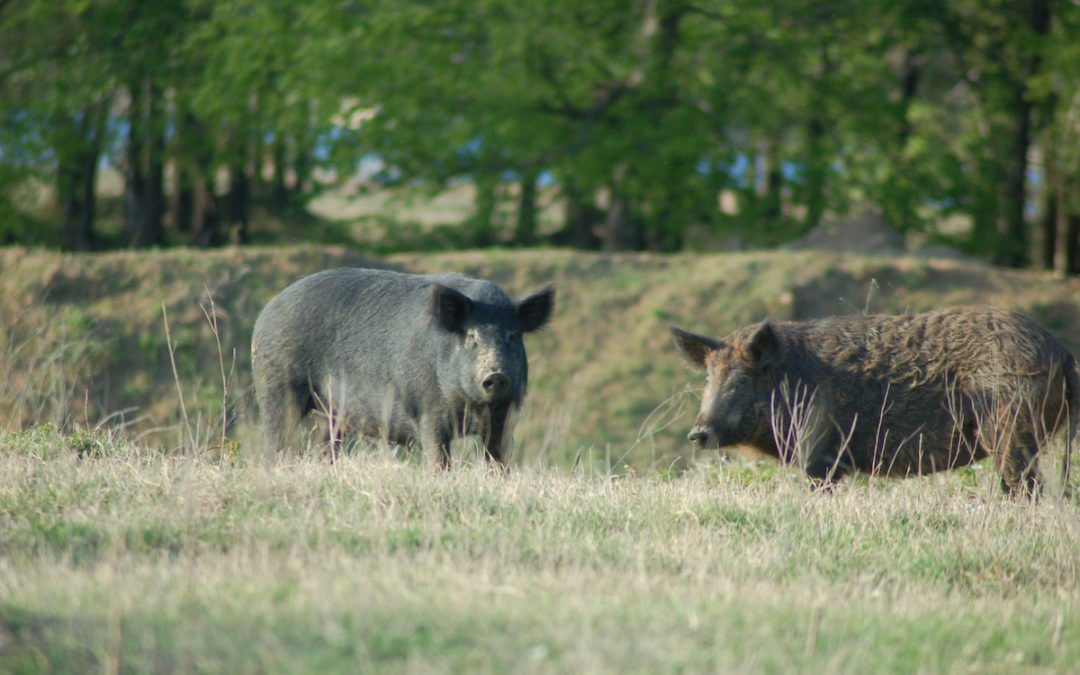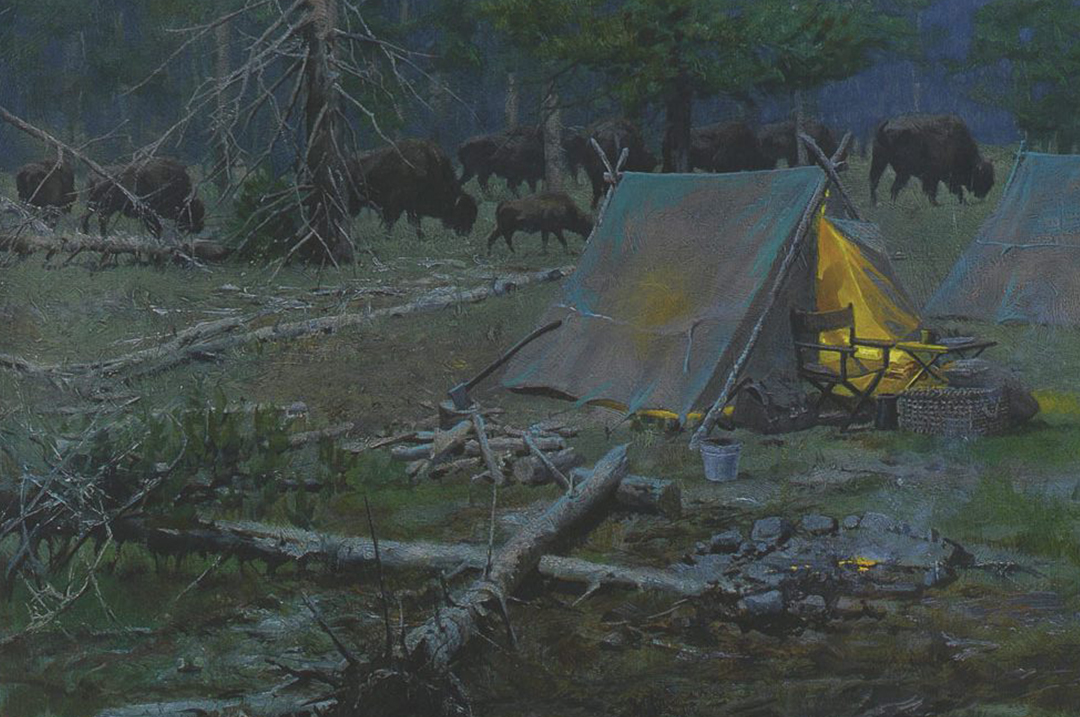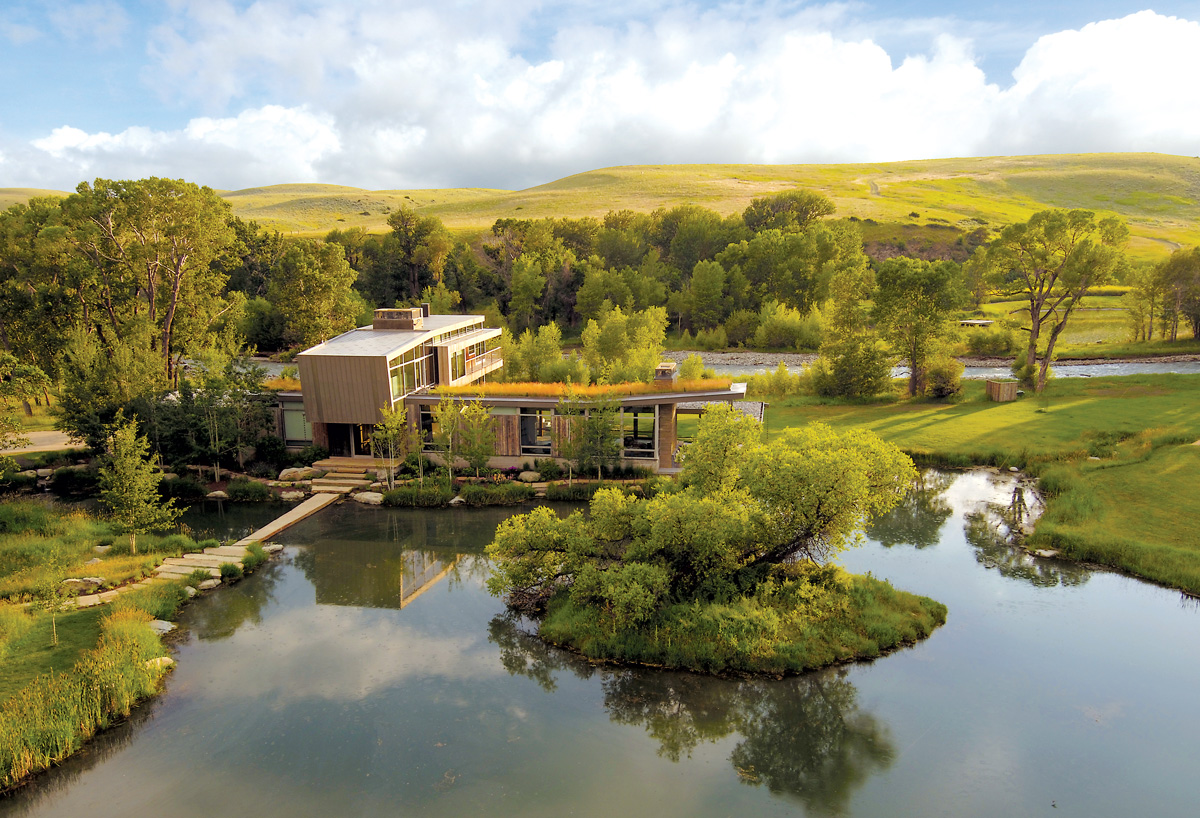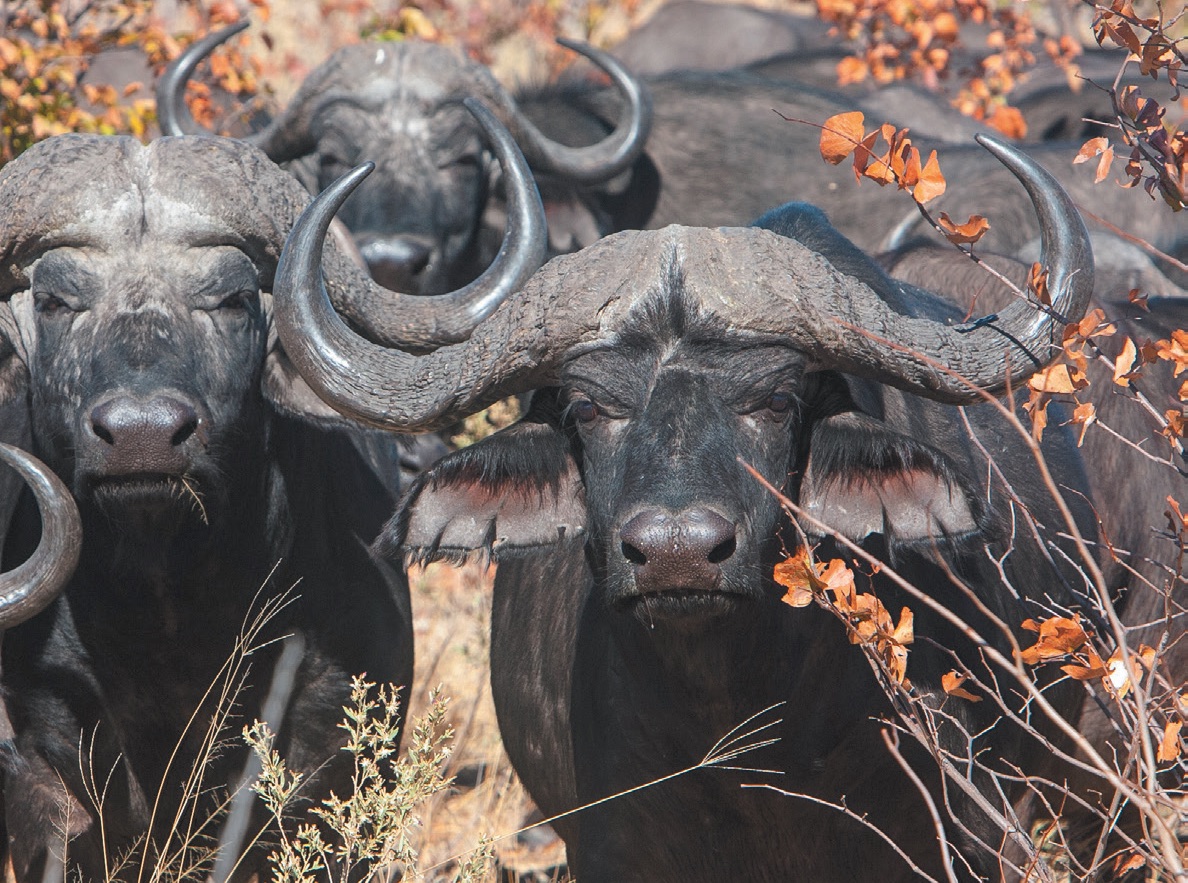COSTS
It’s important to thoroughly discuss all costs before booking. Is there an added guide fee or is the fee included with the price of the hunt?
A knowledgeable hunting guide is very helpful for several reasons. First, they will have a good working knowledge of hogs’ travel routes and feeding areas and know where to set you up for success.
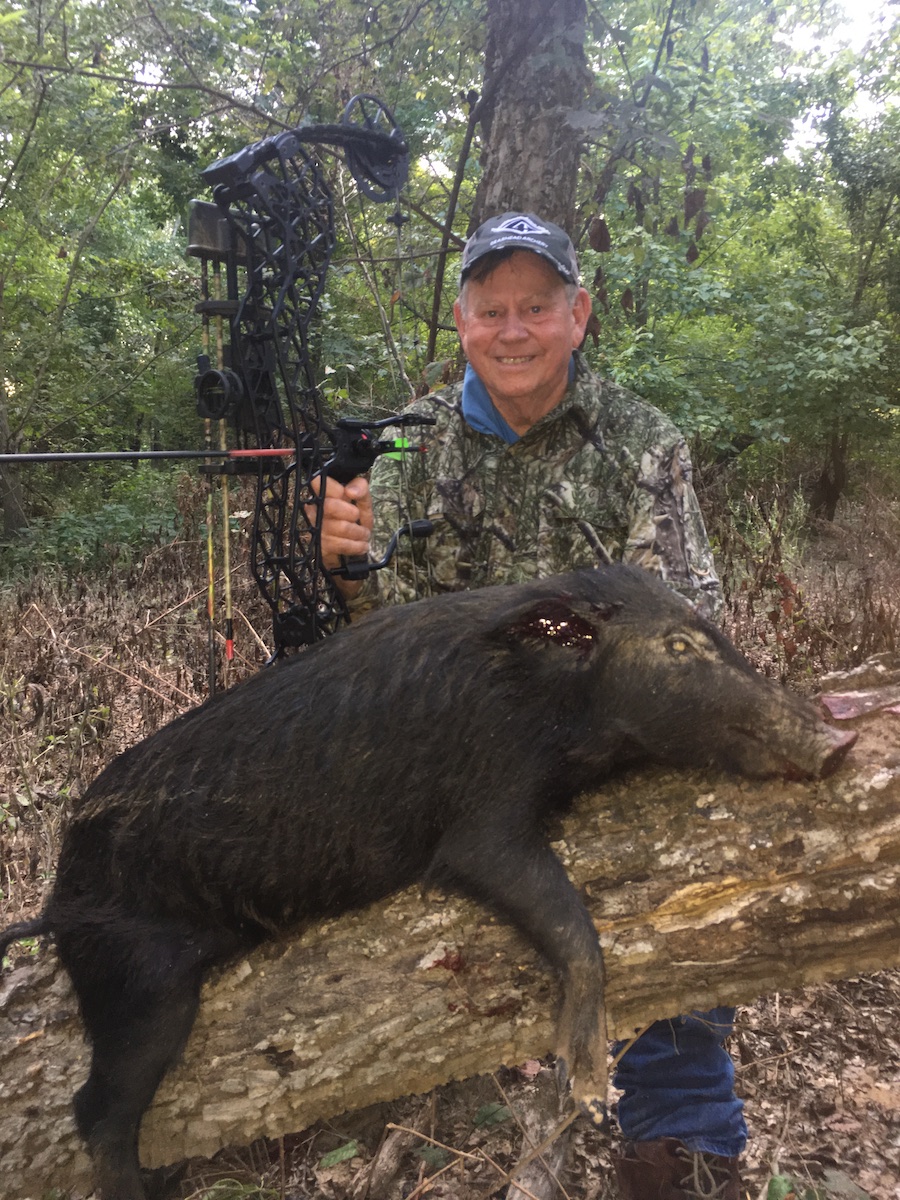
Make sure your guide knows ahead of time if you are bowhunting or are after a “meat” hog.
If you are booking a meat hunt for a smaller “eater” hog rather than a big toothy boar, your guide will probably know areas of the ranch where younger hogs are hitting feeders with regularity. Mature boars, just like mature whitetail bucks, are crafty critters and it’s often necessary to hunt them a bit differently.
Make sure and discuss lodging as well. Is lodging and food included in the price or is the hunt more of a DIY type adventure?
WEAPON CHOICE
Make it a point to devote some time to discussing the type weapon you wish to hunt with. The reasons are obvious; if you are a bowhunter, your guide will need to design your hunt around stands that are bowhunter-friendly, with ground blinds or treestands in close proximity of a corn feeder or travel route your targeted species often frequents.
If you wish to do your hunting with a flat-shooting centerfire rifle, your guide might wish to set you up for longer shots.
Hunting with big bore PCP air rifles is getting more and more popular since Texas now allows such rifles for big game hunting. If your desire is to harvest an exotic with one of these rifles, your guide can set you up for shots out to about 75 yards, which is a lot farther than the bowhunter would desire but not nearly as far as a flat-shooting centerfire with quality optics.
Also inquire as to the availability of a shooting range where you can take a few test shots to insure your weapon is still zeroed before your hunt.
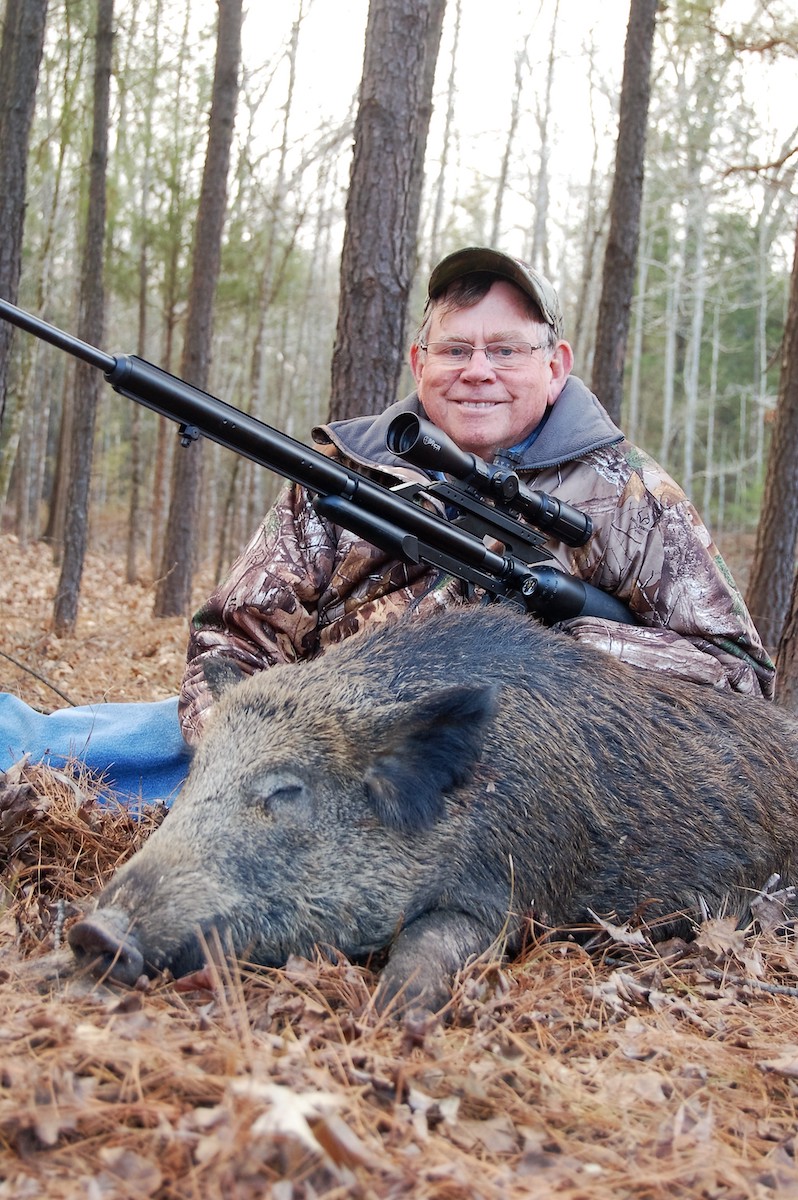
PCP air rifles are becoming a popular tool for hunting hogs.
FOOD
If meals are included, it’s always a good idea to discuss the menu when booking. Make sure and mention any special needs in regards to diet that might be required. Also inquire as to which meals are served. Many ranches offer a Continental breakfast with coffee or juice very early in the morning before the hunt and then a big brunch mid-morning. The big meal for the day is usually dinner, which is served after the trophy and meat are hung in the walk-in cooler and the hunters have time for a refreshing shower.
TAXIDERMY AND MEAT PROCESSING
Make sure you have a plan for the processing of the meat from your exotic and a taxidermist in mind to create your trophy. Most hunting ranches are connected with local processors and have taxidermists they have confidence in, or you might have your own taxidermist that you wish to work with.
Can your guide cape your trophy and make it “taxidermy ready?”
You might wish your guide to quarter your animal and chill the meat for your trip home where you wish to do the processing yourself. It’s much better to address all these questions at the time of booking and have a comprehensive plan for your hunt rather than to be surprised later.
Luke’s book, Kill to Grill, the Ultimate Guide to Hunting Wild Hogs is available via www.catfishradio.org.
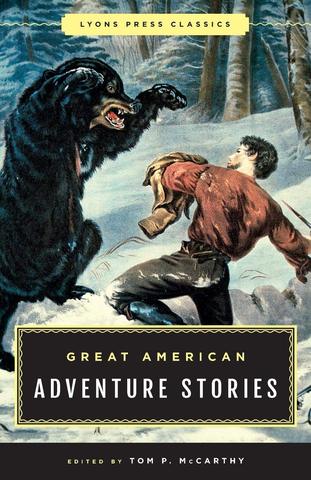 Great American Adventure Stories contains page-turning accounts of the Galveston Hurricane, the Alaska Gold Rush, a robbery featuring Jesse James, an eyewitness account of the Johnstown flood, and much more. For a taste of the American frontier, Daniel Boone and famed scout Kit Carson depict what they saw and experienced as the country expanded and blossomed in the West. These accounts all have one thing in common: They capture the grit and spirit of people who made America what it is today. Shop Now
Great American Adventure Stories contains page-turning accounts of the Galveston Hurricane, the Alaska Gold Rush, a robbery featuring Jesse James, an eyewitness account of the Johnstown flood, and much more. For a taste of the American frontier, Daniel Boone and famed scout Kit Carson depict what they saw and experienced as the country expanded and blossomed in the West. These accounts all have one thing in common: They capture the grit and spirit of people who made America what it is today. Shop Now

